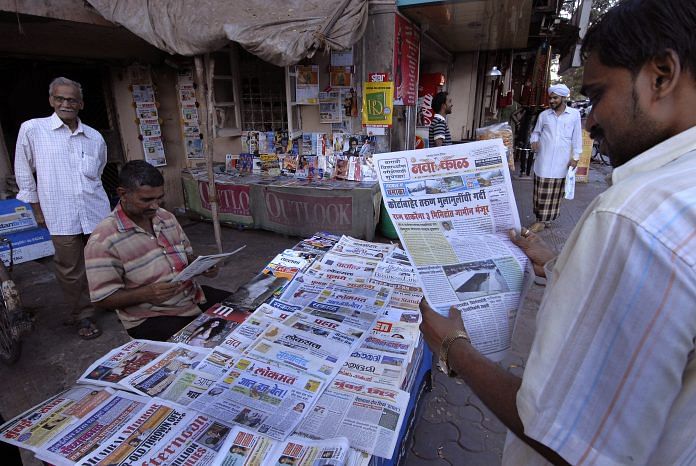Gujarat saw 414 cases of paid news during the 2012 assembly election campaign, and even five years later, the EC is struggling to combat the problem.
Amid the cacophony of a heated assembly election campaign, ‘paid news’ has raised its head once again in Gujarat. The Election Commission is investigating over 400 possible cases of paid news, and has already shot off notices in 23 cases, highly-placed sources told ThePrint.
Those who have been served notices will have to respond within 20 days. Sources said the other cases were also being examined closely.
Worsening problem
A whopping 414 cases of paid news were reported in the state during the 2012 campaign. Markandey Katju, then-chairman of the Press Council of India, had termed the situation “shocking and very disturbing”, and said this indicated that self-regulation in the media had failed.
Paid news, however, is not limited to any one state. It is a country-wide problem seen across elections, with the most recent examples from Punjab and Uttar Pradesh, which recorded 80 and 56 cases respectively in the run-up to the assembly elections earlier this year.
The problem has continued to grow over the years – in 2016, there were 23 confirmed cases across the states of Tamil Nadu (17), Assam (5) and West Bengal (1). In 2015, there were seven confirmed cases in Bihar, while in 2013, Madhya Pradesh saw 165 cases, Karnataka 93, and Rajasthan 81.
The year 2012 was the worst since data started being recorded – there were 523 confirmed cases in Punjab, 414 in Gujarat, 104 in Himachal Pradesh, and 97 in Uttar Pradesh. Before that, Kerala had seen 65 cases, Assam 42, and West Bengal 15 cases in 2011. In the 2010 Bihar assembly polls, there had been 15 confirmed cases of paid news.
Challenges before EC
So far, less than five politicians have been barred by the Election Commission from contesting polls, on account of paid news. The most prominent among them are former Jharkhand Chief Minister Madhu Koda, barred in September, and Narottam Mishra, senior Madhya Pradesh minister, who was disqualified earlier this year. Mishra has challenged the EC order.
In addition to issuing the notices in the large number of cases mentioned above, the Election Commission has also been taking up the issue repeatedly with the law ministry, seeking that paid news be treated as a cognisable offence. But there has been no movement so far.
The Election Commission says the toughest challenge is to establish that the news is paid for. There is usually circumstantial evidence, but little proof. It is not easy to establish whether transactions have taken place – whether in cash or kind – because usually, they are carried out without any record and promptly denied by both parties.



